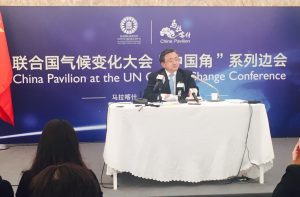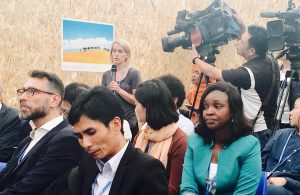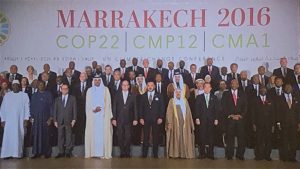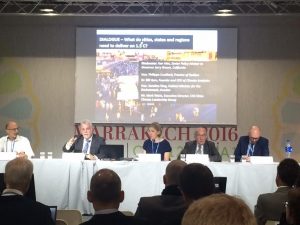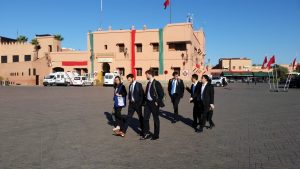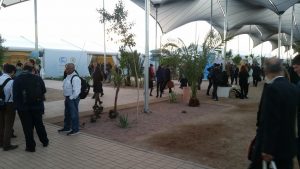Ryan
This morning we had a chance to sit in on a briefing from Jonathan Pershing, the lead US negotiator. He was able to provide us with some great insight into the outcomes of COP22 and expectation for subsequent COPs. After several days of attending side events and learning about all angles of the climate change problem from various state and NGO experts, it was great to get to see behind the curtain of the formal negotiations. Jonathan emphasized that the goal continues to be to finalize the Paris rulebook by 2018. In the meantime they have been working to finalize the work plans and deadlines needed to meet those goals. He also emphasized the need for a robust and inclusive discussion on how we will transition to a low carbon economy without leaving people behind. The recent election sent strong signals that not enough is being done to help the people in the fossil fuel industries that are hurting as the economy has begun to naturally transition even if those people weren’t considering climate change part of the problem it is a strong driver towards the new economy.
Bella
Today I have been attending briefings and panel sessions that concerned with youth. In a US briefing especially for youth and university students today, the speaker listed opportunities for youth to work on and take the lead to facilitate the transition from fossil fu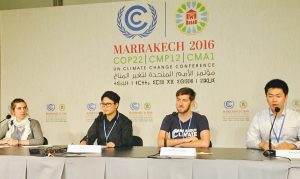 els to clean energy. In the afternoon, I attended the US and China Youth Statement on Climate Change Action, which was held by China Youth Climate Action Network CYCAN and Cares about Climate.
els to clean energy. In the afternoon, I attended the US and China Youth Statement on Climate Change Action, which was held by China Youth Climate Action Network CYCAN and Cares about Climate.
They declared that their goal is tried to promote unified action to reduce the share of fossil fuels to nearly 0 by 2050. At the panel session in China’s pavilion, Junfeng LI also sent his voice to young people that it is the youth that holding the future of climate change actions.
I also visited the green zone to see how much Morocco has been done to tackle climate change issues. There are really advanced and also interesting technology or art exhibitions. Here is also a very good place for people to share with the public about their thoughts on climate change issues. Engaged in this atmosphere, I really feel like everybody is keen to work unitedly and we should have faith in our united commitment
Adam
The COP is winding down, but you wouldn’t know it from the crowds filling the halls and event rooms here in Marrakech. The schedule remains packed with presentations and panels covering a broad range of topics, and attendees seem focused on making the most of their time here. As I mentioned before (and expanded upon in my most recent blog post), the emphasis of this year’s COP certainly seems to be on matters outside the formal negotiations process. Attendees are intently focused on figuring out the best approaches to implementing the Paris Agreement through both traditional and newer, more innovative channels. It’s exciting to witness how much is going on beyond the UNFCCC process itself.
One of today’s highlights was sitting in on a briefing hosted by Jonathan Pershing, the U.S. Special Envoy for Climate Change. He spoke candidly and earnestly about the opportunities and challenges ahead, and instilled a sense of hope within the audience. While it’s certainly disappointing to know that folks like Mr. Pershing will no longer play a part in U.S. climate diplomacy come mid-January, it’s encouraging to know that such talented, accomplished experts in climate policy will remain committed to making a difference regardless of political circumstances. And he impressed upon us that we must do the same.
